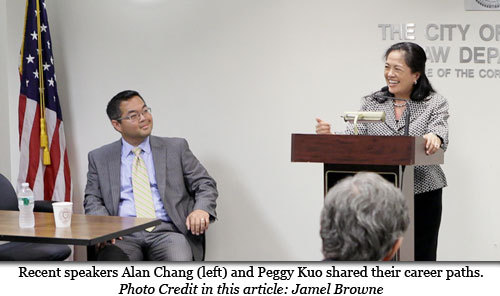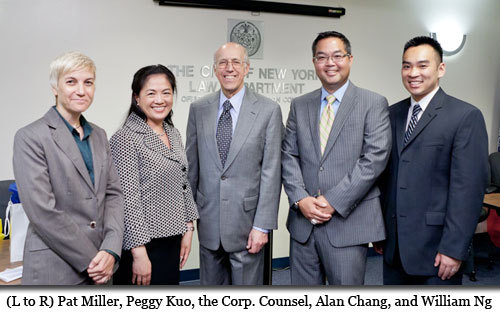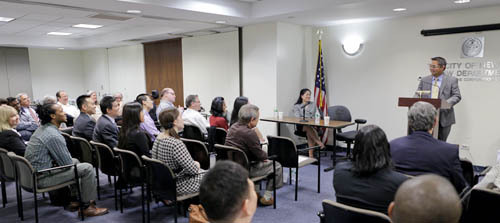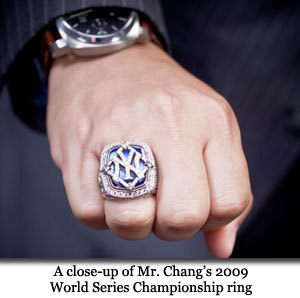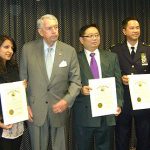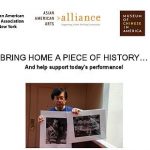For Immediate Release
For More Information, Please Contact:
Jonathan Saw
212-327-9269 or 917-273-6498
[email protected]
Asian Pacific American Employees View Their Companies Less Favorably
the Longer They Have Been in the U.S.
“Time in U.S.” Could Be a Critical Factor in Asian Pacific American Employee Engagement
New York, NY, (November 28, 2011) – The longer Asian Pacific American (APA) employees live in the United States, the less favorably they view their companies, an annual Asia Society survey found. The 2011 Asian Pacific Americans Corporate Survey indicates that this decline starts after about 10 years and is most apparent amongst APA employees who have lived in the U.S. 20+ years or who are U.S.-born.
The favorability decrease is especially true in the critical area of professional growth. Among those surveyed:
- 49% of APA employees who have been in the U.S. for 20+ years view their companies favorably in terms of professional growth.
- A bare majority – 53% – of APA employees who have been in the U.S. from 11-20 years view their companies favorably on this dimension.
- While 62% of APA employees, who have been here for 10 years or less, view their companies favorably in terms of professional growth; this group constitutes only 24% of APAs in the U.S.
The model minority stereotype assumes that the hardworking, intelligent, Asian American employee, who does not “rock the boat,” has no problem rising up the corporate ladder. This is especially true for those who are culturally “American.” But a look at the senior ranks of most companies shows that the reality is quite different. Asian-American faces are almost entirely absent.
“New Asian immigrants are singularly focused on establishing a foothold both economically and culturally in the U.S. – similar to immigrants of any ethnicity,” said Vishakha N. Desai, President of Asia Society. “On the other hand, Asian-Americans who were born here may recognize more easily where Corporate America’s formal policies and commitment to diversity are not fully realized on the day-to-day level.”
This is not to say that companies have not made efforts, but the data suggests they may be focused on the wrong thematic areas.
“The implications of this data are striking.” said Desai. “It suggests that efforts to engage Asian-American employees need to include ‘time in the U.S.’ as an additional filter. For example, while the offer of assertiveness training may be welcomed by an employee recently arrived from Shanghai, it could be viewed as deeply objectionable when offered to an APA employee who was born in San Antonio.” Desai continued.
The country of origin differences are real and should not be overlooked. However, the survey data suggests that this could be less true as time goes on. With the APA population growing faster than any other ethnic group, except for Hispanics, the disengagement suggested by the data will fast become an even larger issue.
About the Asian Pacific Americans Corporate Survey
Asia Society first began conducting the APA Corporate Survey in 2010, to address the need for independent information, backed by statistics, about the APA workforce. At that time, there was very little information about APA employees and their perceptions and experiences, and the APA Corporate Survey was the first to exclusively measure and to recognize practices related to developing APA working at Fortune 500-level companies.
2011 Award Winners
KPMG LLP: Overall Best Employer for Asian Pacific Americans
Colgate-Palmolive Company: Best Company for Asian Pacific Americans to Develop Workforce Skills
PepsiCo, Inc.: Best Company in Promoting Asian Pacific Americans into Senior Leadership Positions
Cardinal Health, Inc.: Best Company for Support of the Asian Pacific American Community
GE: Best Company with the Most Innovative Practices
2011 Other Finalist Companies:
3M
Cisco
Corning Incorporated
Freddie Mac
Goldman, Sachs & Co.
HSBC Bank
Kaiser Permanente
Kraft Foods
Lear Corporation
McDonald’s Corporation
New York Life Insurance Company
Pfizer
PG&E Corporation
Sodexo, Inc.
Time Warner Inc.
To speak with representatives from one of these finalist companies or for questions about participating in the 2012 survey, please contact: Jonathan Saw, [email protected], 212-327-9269
About the Asia Society
Asia Society is the leading global and pan-Asian organization working to strengthen relationships and promote understanding among the people, leaders and institutions of the United States and Asia. The Society seeks to increase knowledge and enhance dialogue, encourage creative expression, and generate new ideas across the fields of arts and culture, policy and business, and education. Founded in 1956, Asia Society is a nonpartisan, nonprofit educational institution with offices in Hong Kong, Houston, Los Angeles, Manila, Melbourne, Mumbai, New York, San Francisco, Seoul, Shanghai, and Washington, D.C. Asia Society is on the web at www.AsiaSociety.org.
###







